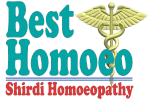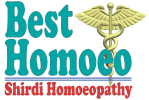Acne is a common skin condition that occurs when hair follicles become clogged with oil and dead skin cells, leading to pimples, blackheads, whiteheads, and sometimes cysts or nodules. Acne primarily affects teenagers, though it can occur at any age.
Types of Acne:
- Blackheads (Open Comedones): These are small, dark lesions on the skin’s surface caused by clogged hair follicles. The dark color is due to the oxidation of sebum (oil) in the pores, not dirt.
- Whiteheads (Closed Comedones): These are similar to blackheads but are closed at the surface of the skin, appearing as small, flesh-colored bumps.
- Papules: Small, red, raised bumps caused by inflamed or infected hair follicles.
- Pustules: Similar to papules but filled with pus, appearing as red bumps with a white or yellow center.
- Nodules: Large, painful, solid lumps beneath the surface of the skin. Nodules can be more severe and can lead to scarring.
- Cysts: Deep, painful, pus-filled lumps beneath the skin that can cause scarring.
Causes of Acne:
- Excess Oil Production: Sebaceous glands in the skin produce excess oil, which can clog pores.
- Dead Skin Cells: When dead skin cells are not shed properly, they can mix with oil and block hair follicles.
- Bacteria: The bacterium Cutibacterium acnes (formerly Propionibacterium acnes) can proliferate in clogged pores, leading to inflammation.
- Hormonal Changes: Hormones, particularly androgens, can increase oil production, leading to acne. This is why acne is common during puberty, menstruation, and pregnancy.
- Diet: Some studies suggest that diets high in refined sugars, dairy products, and certain fats may contribute to acne.
- Stress: Stress doesn’t cause acne directly but can worsen it by triggering hormonal changes.
- Certain Medications: Steroids, certain birth control pills, and medications containing lithium can cause acne.
- Cosmetics and Skin Care Products: Products that clog pores (comedogenic) can contribute to acne.
Skincare Tips for Acne-Prone Skin:
- Gentle Cleansing: Wash your face twice daily with a mild, non-comedogenic cleanser.
- Avoid Over-Washing: Over-washing can irritate the skin and increase oil production.
- Non-Comedogenic Products: Use skincare and makeup products labeled “non-comedogenic” to avoid clogging pores.
- Moisturize: Even oily skin needs moisture. Use a light, oil-free, non-comedogenic moisturizer.
- Sun Protection: Use a non-comedogenic sunscreen, as some acne treatments can make your skin more sensitive to the sun.
- Avoid Picking or Squeezing Pimples: This can lead to scarring and spread bacteria.
- Healthy Diet: Consider reducing high-glycemic foods and dairy, and focus on a balanced diet rich in fruits, vegetables, and whole grains.
- Manage Stress: Techniques like yoga, meditation, and exercise can help reduce stress and improve skin health.
With the right treatment and skincare regimen, acne can often be managed effectively, though it may take time to see significant improvements.

